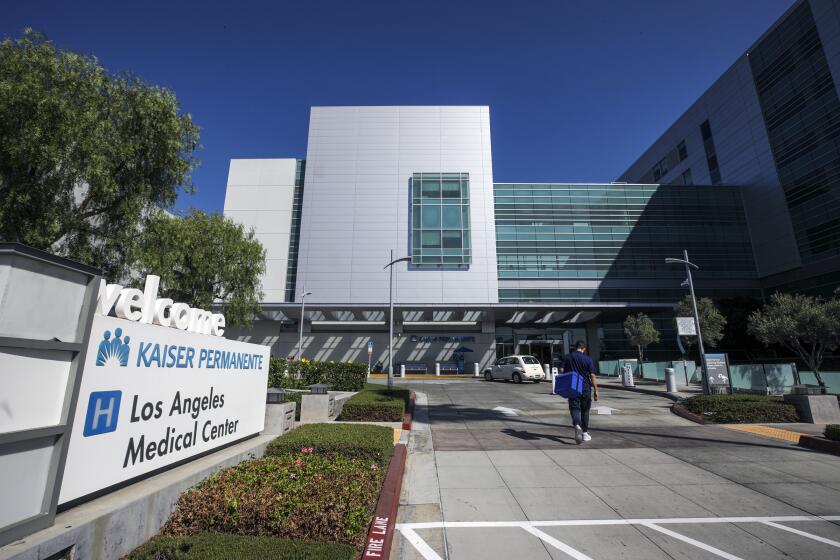L.A.-area air pollution could dip from new EPA rule on ships
Air pollution from U.S.-flagged oil tankers and cargo vessels will be reduced by about 80% under new engine and fuel standards finalized Tuesday by the U.S. Environmental Protection Agency, a move that could improve Los Angeles’ air quality.
The new standards, however, will apply only to existing U.S.-flagged ships, which account for about 10% of the vessels that visit U.S. ports each year. The vast majority of the estimated 6,000 large ships that berth annually at the Los Angeles-Long Beach port complex are foreign-flagged.
Large marine vessels, which burn dirty, heavy fuel oil, are linked to about 800 premature deaths in the Southern California region each year, according to state authorities.
The standards will take effect by 2015.
Still pending are international regulations to reduce diesel emissions from large, oceangoing vessels within 200 nautical miles of U.S. and Canadian coasts. The International Maritime Organization is slated to pass its rules, expected to be similar to those of the EPA, in March.
“Port communities have identified diesel emissions as one of the greatest health threats facing their people -- especially their children,” EPA Administrator Lisa P. Jackson said in a statement. “These new rules mark a step forward in cutting dangerous pollution in the air we breathe and reducing the harm to our health, our environment, and our economy.”
Port officials familiar with the EPA announcement were not available for comment Tuesday.
The new emissions standards were prompted by a series of lawsuits brought against the EPA by environmental groups led by Earthjustice.
“For 10 years, we’ve been trying to compel the EPA through the courts to get this source of pollution cleaned up,” Sarah Burt, an attorney with Earthjustice, said Tuesday. “Today, the EPA has taken a good step in the right direction.”
David Pettit, a senior attorney with the Natural Resources Defense Council, agreed. “It shows the U.S. is serious about reducing the sulfur content in fuels used by large ships,” he said.
By 2030, EPA officials said, the domestic and international strategy is expected to prevent between 12,000 and 31,000 premature deaths and 1.4 million lost workdays. The estimated annual health benefits in 2030 as a result of reduced air pollution are valued between $110 billion and $270 billion, nearly 90 times the projected cost of $3.1 billion to achieve those results.
More to Read
Start your day right
Sign up for Essential California for news, features and recommendations from the L.A. Times and beyond in your inbox six days a week.
You may occasionally receive promotional content from the Los Angeles Times.







